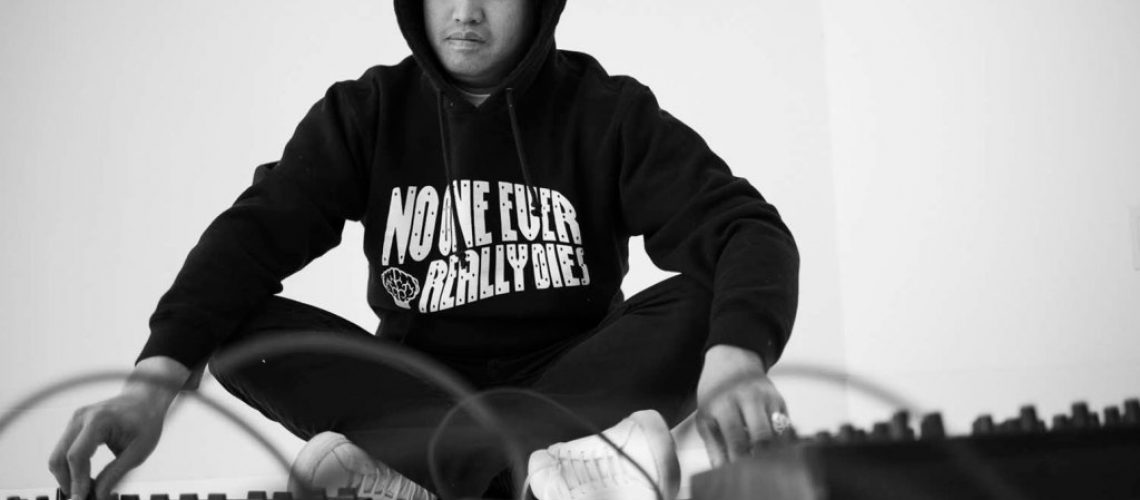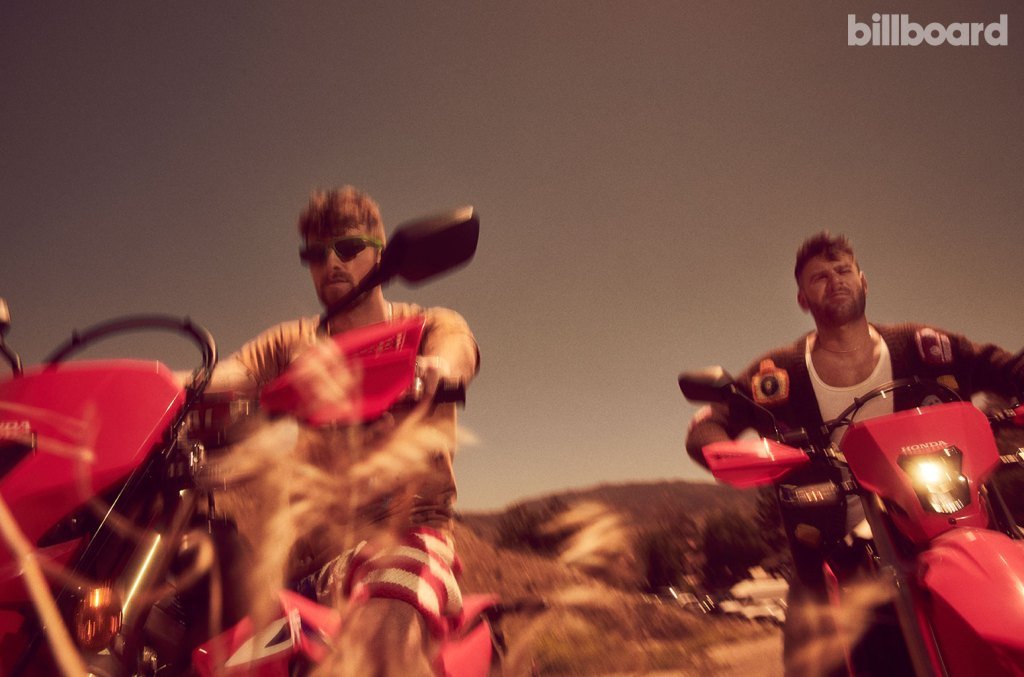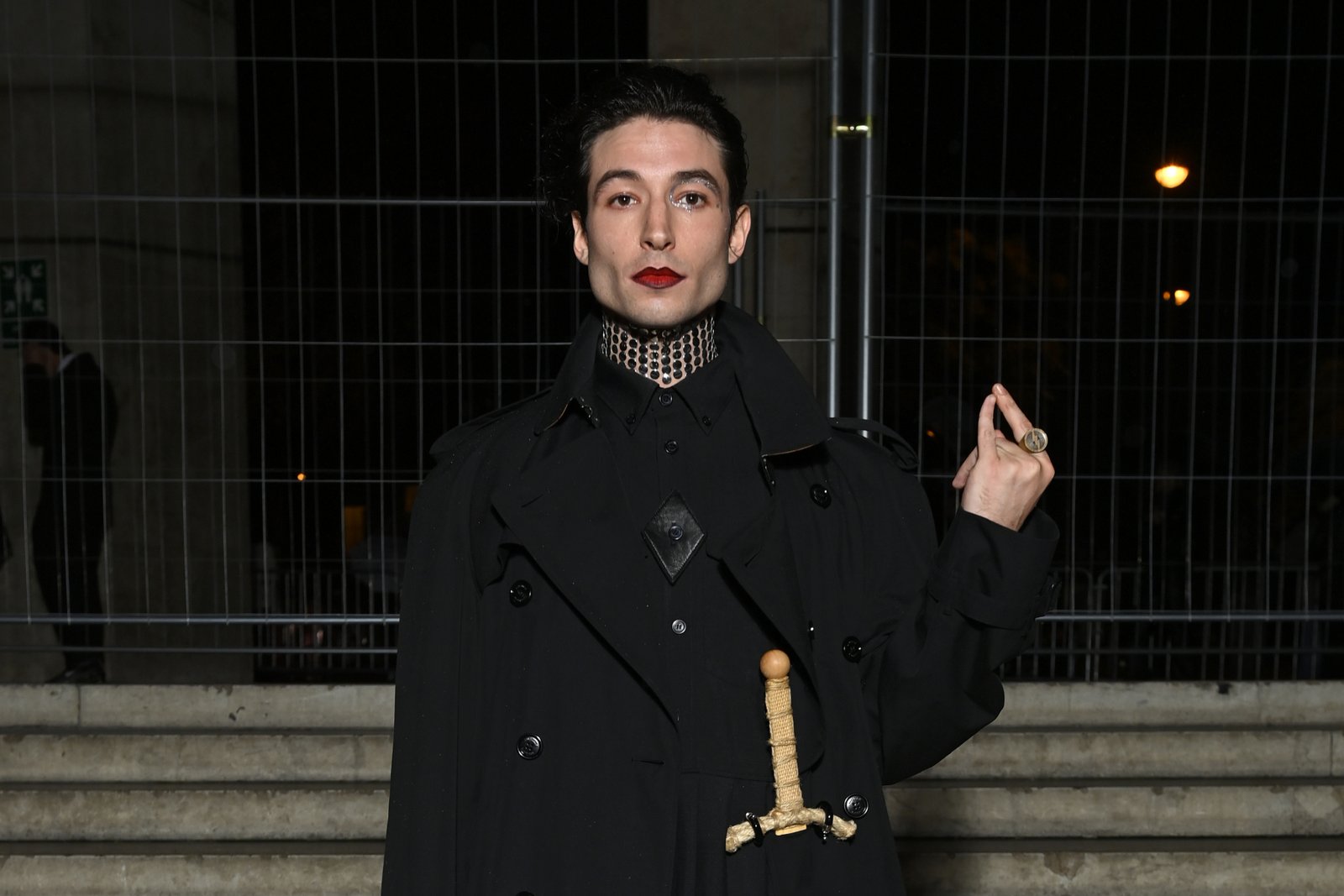Chad Hugo has a way of finding what your other talents are.
Hugo, calling in from New York in May, asks if this interviewer played any instruments. When I tell him about my brief experience playing second violin in my middle school orchestra, he suggests I should pick it back up again. Later in our conversation, I ask how he stays creatively motivated while remaining a student.
“Creativity comes and goes,” he says over Zoom. “It’s various ways. I think reading books and there’s MasterClasses they offer, I’ve been watching some of those. TED Talks. Just staying up on things like that. The news. Traveling. Family is very, very important. And spreading encouragement to other people too. Being inspiring to younger people, as well as older people. And living life.”
Explore
See latest videos, charts and news
See latest videos, charts and news
“Why did you stop playing?” he asks.
I tell him about quitting orchestra once I got to high school, rebelling against an instructor I didn’t like by dropping the class. After hearing my story, he offers a piece of wisdom.
“The awesome thing is you have the foundation, you could always go back to it,” Hugo says. “You always have a family there, to string instruments and orchestra, if you wanted to get back into it, you could. They are always welcoming community musicians in instrumentalist communities. It’s not too difficult to bring something.”
As someone who finds time to play with metro big bands in Virginia these days, the 48-year-old polymath is a pure musician who continues to keep his skills sharp. Hugo has an encyclopedic knowledge of music, musical equipment, and instruments. Any time he shares a story, he’s humbled to still be here, naming off studio gear he used at the time as markers in history. With his longtime friend Pharrell Williams as The Neptunes, Hugo changed the sound of pop and urban radio from the late 1990s into the 2000s, producing for N.O.R.E., Busta Rhymes, Clipse, Jay-Z, Madonna, Justin Timberlake, Britney Spears, and many more.
It’s why fans got excited two years ago, on January 9, 2020, when Hugo revealed to Clash that he and Williams were “getting back on The Neptunes grind.” Coming off N.E.R.D.’s No One Ever Really Dies in 2017 and Justin Timberlake’s Man of the Woods in 2018, this would be the first time the duo officially returned to produce for a new crop of artists.
On January 16, it was also announced The Neptunes would be inducted in the Songwriters Hall of Fame, an honor that Hugo is very familiar with – from naming songs the founder Johnny Mercer has written to recognizing the prestigious honor of the Johnny Mercer Award. Joining The Neptunes for the 2020 class are Mariah Carey, Isley Brothers, William “Mickey” Stevenson, Annie Lennox and Dave Stewart of the Eurythmics, Steve Miller, and Rick Nowels. Master songwriter Paul Williams will be receiving the Johnny Mercer Award and Universal Music Publishing Chairman and CEO, Jody Gerson will receive the Abe Olman Publisher Award.
Jon Platt, chairman and CEO of Sony Music Publishing and a board member of the Songwriters Hall of Fame, was the first to break the news to Hugo about his induction. Because of the coronavirus pandemic, the 51st annual induction and awards gala in New York has been postponed twice: it was originally set for June 11, 2020 and rescheduled for June 10, 2021. During those two years of postponing the show – and before the new date of June 16, 2022 – Hugo went to work at Criteria Recording Studios. “I was in the studio in Miami recording with my fellow Neptune, comrade Pharrell Williams, at his place,” Hugo says. “Various artists would come by. We would have recording sessions and beatmaking sessions. I was there to help, do what I can to contribute whatever it is I know and can do for the music.”
Between 2020 and 2022, The Neptunes’ sound started to spread through popular music again, via songs the duo produced for artists like the late Pop Smoke, Megan Thee Stallion, Moneybagg Yo, Brent Faiyaz, Summer Walker, Rosalía, A$AP Ferg, Nigo, and Omar Apollo. Recently, Pusha T’s It’s Almost Dry album contained Pusha’s version of a Verzuz battle, with production split between Pharrell and Kanye West. Hugo was in Miami for over six weeks working with Ab-Liva and Pusha on the album, as confirmed by his publicist. “We just kept on the grind and made some stuff happen,” Hugo says.
Hugo’s mystique is that he’s known as the person who plays the background, quietly being part of the recording experience. Pharrell has once said about Hugo: “He’s himself. He’s a savant. Being around him only makes everyone else better. He radiates genius.” Hugo’s introverted tendencies pairs well with Pharrell, who is often front-facing and in the spotlight. It creates a synergy and balance that’s rare to come by in hip-hop.
Many have written about how Pharrell met Chad as teenagers in band camp and getting discovered by New Jack Swing architect Teddy Riley, who signed them as a band before they transitioned to a production duo. But what hasn’t been written about enough is Hugo’s success story as a Filipino American in the music industry — especially given how Asian and Asian American musicians have risen to prominence in recent years.
It didn’t feel like a big deal back then to see him as one of the only Asians in the video for Clipse’s biggest song, “Grindin’.” Or to hear him explain Pharrell’s process and what he adds to the beat to make it sound interesting, taking it to a zone that’s associated with a feeling, in Jason Goldwatch’s 2003 documentary The Neptunes: The Eighth Planet. Or to hear him string together a freestyle over the “Rock Your Body” beat while Pharrell and Justin Timberlake were in earshot. It’s these meaningful moments as an Asian role model that were inspirational for the community who respect his contributions now, creating a path for the next generation to be comfortable embracing their otherness.
Hugo’s memories from his childhood are relatable to any Asian American household. He remembers his parents getting together with colleagues who migrated to America at the same time they did, building their tightly knit immigrant community. Family gatherings were also a thing for him, too.
“One of my aunts, she would host these ‘Name That Tune’ parties when we visited her. She had this Casino electronic keyboard and her and her lady friends would be blurting out ‘I don’t [know] what song,’” Hugo says. “Being around that scene, people get hyped and turnt up from hearing their favorite tune interplayed on an instrumental keyboard. No one was singing. It was like, ‘Name this tune! I can name it in five notes. I can name it seven notes. I can name it in 10 notes.’ And then they would say, ‘Oh, you win a prize!’ I was like, ‘Oh, this is an interesting form of entertainment.’ That kind of stuff stuck with me.”
Hugo’s parents worked all the time: his mother was a lab technician while his father served in the U.S. Navy. Entertainment at home consisted of music, watching vintage TV shows, and playing sports outside. His family had a console piano. He was fascinated by his parents’ record collection and their automatic record player. Later in life, his music interests grew through DJing church functions after learning how to mobile DJ. Because he was part of a community of aspiring Virginian producers who shared an interest in drum sounds and staying up on the new gear that was coming out, Hugo always had an outlet to explore music.
“Growing up as a kid, I used to make splice tapes out of electro-funk records,” Hugo says. “[That] was one of the things that I liked to do, which involved using a cassette and a boombox. And catching when the song would play on the next mixshow and hitting record on a beat, on a certain count. Like beat one or whatever. And that’s an extended play and that was a thing to have extended remixes and stuff. So that hobby just developed into recording, partnering up, and the collaborative process.”
He credits his mom for being a big supporter of his career. “When SWV’s [Neptunes-produced] ‘Use Your Heart’ came out, that was one of her favorite songs. And she would be encouraging. She would tell me what songs she liked on the radio. She really liked Diana Ross’ ‘Upside Down,’” Hugo says. “I remember her liking that song. ‘Use Your Heart,’ she really appreciated the writing there. ‘Use your heart, not your eyes.’ She was supportive of that tune.
“One thing about [my mom], when we got my saxophone the first time, I started out with a Buescher Aristocrat, which is like a vintage horn that’s tarnished and stuff,” he continues. “She was like, ‘If you get better, you can get something better. But for now, this is it.’ The suburban life of hand-me-downs and if you want to make it, you got to work your way up.”
To be considered for the Songwriters Hall of Fame, a songwriter with a notable catalog of songs qualifies for induction 20 years after the first commercial release of a song. Hugo heeded his mom’s advice, because he’s come a long way from his first solo production credit, Average Guyz’ “Ride,” in 1995, which he describes as “early production days of Teddy Riley.” Alongside Pharrell, they created a synth-heavy sound that’s been described as intergalactic and futuristic, ahead of its time. Even in 2022, their four-count intro remains a trademark and a pop and hip-hop staple, and their songs as N.E.R.D. with band member Shay Haley continue to be celebrated.
“From my point of view, I just liked the process of being involved in making a record and then building on something and constructing something that is durable. Bulletproof. Something that you can hear over and over again,” Hugo says. “And just being a fan of music and appreciating art and incorporating that into what we did. And I’m just grateful that I’ve been able to travel places and reach different audiences through my partnership with Pharrell as The Neptunes. You know, we were hustling and we just wanted to get our stuff out there. I’m just thankful to be a part of it.”
This year is a perfect time to be a Neptunes fan, as many of Hugo’s important releases from 2002 are turning 20. The U.S. version of N.E.R.D.’s In Search Of… just reached its anniversary on March 12. Longtime Neptunes advocate Tyler, the Creator has tweeted it was the “greatest album of all time.” “Wow, he called it the greatest album of all time?” Hugo says in response. “That’s crazy, man. I love Tyler’s work and I love him as an artist. Igor was dope. I appreciate the shout-outs.”
“We were experimenting with a lot of sounds,” he remembers. “As a kid, I used to listen to some prog rock. When you listen to prog rock elements from the late ‘70s and ‘80s and some of the groups out there, it’s almost like a story the way they write their songs. It’s almost like a fictitious novel with some of the elements. It’s almost cinematic and movie-like. We were just starting a new movement. I think to this day, I’m still in search of it still. We should always have something that we strive to be searching for. There are things that we do find, and there are things we come to realize, it’s good to have goals and aspirations.”
If The Neptunes decide to take another break, the impact of their legacy will forever cement them as the greatest hip-hop producers of the 21st century. While they aren’t currently working on new music, they have other works that are completed that Hugo hopes it’ll be released in due time. Outside of his work with The Neptunes, Hugo has been sought-after for collaborations like MSSL CMMND, his DJ project with Daniel Biltmore, and producing for rising artists (Stalley, SG Lewis, Rakeem Miles) over the years.
Recently, Hugo was tapped to work on the soundtrack with Dan the Automator for Amblin Partners and Jo Koy’s Easter Sunday, based on the stand-up comedy and life experiences of Koy. He is also working on projects with M.I.A., Eyedress, The BLSSM, and Denzel Curry.
At one point in 2017, Hugo tweeted and deleted that he wanted to “resign from the music business” through an official retirement announcement. While a rep to Pitchfork said it was a bad joke, Hugo says of it now, “It was no joke. At the time, that’s how I was feeling.”
“But I’m back at it,” he reflects. “Continue to be creative in some way with my music. I’ve always liked the horror genre in movies. So if anyone is out there that wants to throw me in something, I’m down to be a zombie.”
Is there a future where Chad Hugo actually retires and becomes a zombie extra? Or is he here forever?
“Working on it,” he says, telling me I got to get back to playing the violin.




